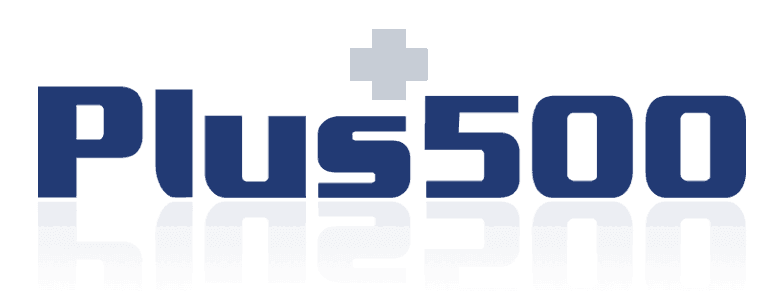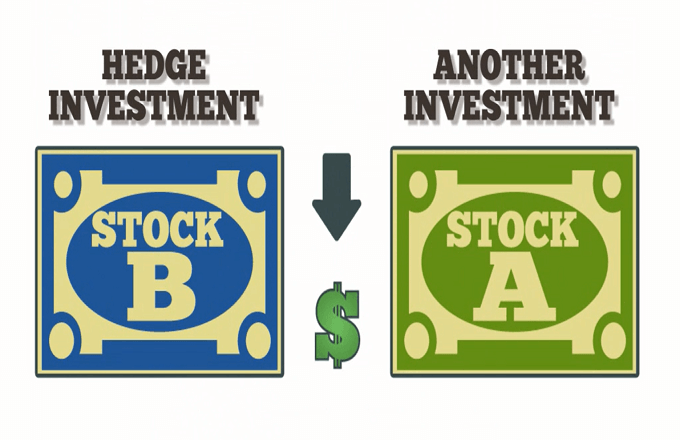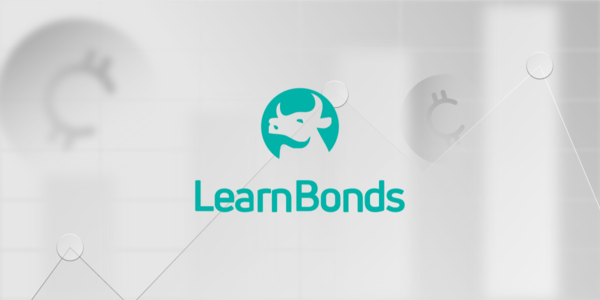CFD Trading in South Africa – A Beginner’s Guide
Contracts-for-differences, or simply CFDs, allow you to speculate on the future price of an asset. CFDs are unique in the sense that you do not own the underlying asset, as they simply track the real-world price of the instrument.
If you’re based in South Africa and CFD trading is something you are interested in, you’ll be pleased to know that there are dozens of online brokers available in the market.
In this guide, we explore how CFD trading in South Africa actually works. On top of explaining how this particular investment arena functions, we also discuss the best brokers to trade CFDs with in 2026.
-
-
How to Trade CFDs in South Africa in 3 Quick Steps
Don’t have time to read our guide all of the way through? Below you will find three quick-fire steps to start trading CFDs right now!
Step 1: Choose a South Africa CFD Trading Platform
As is the case with all other asset classes available in the investment space, you will need to find a reliable trading platform if you wish to buy and sell CFD instruments. Not only do you need to ensure that your chosen broker accepts South African traders, but it also needs to be regulated by a tier-one licensing body.
You will also need to look at other key metrics, such as leverage, fees, commissions, tradable assets, and supported payment methods. To point you in the right direction, below you find a selection of popular brokers that allow you to trade CFDs in South Africa.
1. Plus500 – CFD Trading on Commission-Free Basis
Plus500 is a user-friendly CFD trading platform that tailors its services to those with little experience. As such, the process of opening an account, depositing funds, and then placing buy and sell orders could not be easier.
This online broker gives you access to thousands of CFD products across several asset classes. This includes commodities like oil and natural gas, cryptocurrencies, stocks, indices, and interest rates. Plus500 has built its own proprietary trading platform, so you can’t access the likes of MetaTrader 4.
Unless you keep your position open overnight you won’t pay any trading commissions. Instead, it’s only the spread that you need to keep an eye on. This will vary depending on the asset class you are trading. For example, while gold, indices, and forex spreads are reasonably tight, the likes of cryptocurrencies are somewhat less competitive.
What we also like about Plus500 is that you can get started with just $100, which is about 1,700 rands. The broker supports multiple South African payment options, such as debit/credit cards and bank accounts. You can also use an e-wallet like Paypal.
Finally, Plus500 is heavily regulated. It holds licenses with the FCA, ASIC, MAS, and CySEC, and it is publicly listed on the London Stock Exchange.
Our Rating

- High leverage ratio of 30:1 for South Africa investors
- Plus500 offers useful risk management tools
- Low minimum deposit requirement of $100
- Charges an overnight fee on all positions
80.5% of retail investor accounts lose money when trading CFDs with this provider..2. AvaTrade – Best CFD Trading Platform for Professional Traders
While the previous two South African CFD brokers that we discussed focus their efforts on newbie investors, AvaTrade is potentially better suited for seasoned traders. At the forefront of this is its support for both MT4 and MT5. This means that you will have access to dozens of chart reading tools and technical indicators, as well as the ability to customize your trading screen however you see fit.
Furthermore, and perhaps most importantly, you can use MT4 via AvaTrade to automate your CFD orders. That is to say, the software is fully congruent with CFD trading robots and expert advisors.
When it comes to the trading arena itself, AvaTrade is home to thousands of CFD instruments. This covers most asset classes, such as equities, indices, hard metals, energies, and even cryptocurrencies.
AvaTrade offers short-selling and leverage facilities to all South African traders,- irrespective of whether you fall within the remit of a retail or professional client. Trading fees at the platform are competitive, and most CFD instruments come with tight spreads.
On top of holding a regulatory license in South Africa, AvaTrade is also licensed in Ireland, Canada, Japan, and the BVI. As such, your money is safe at all times.
Our Rating

- Low spreads
- Supports MetaTrader4 and 5
- Allows users to automate CFD trades
- Does not accept e-wallets
There is no guarantee you will make money with this provider.3. IG – Established CFD Trading Platform with Lows Fees
If you’re looking for an established Jack-of-all-trades broker, IG might be of interest. On top of conventional share dealing and CFD services, the platform also offers a spread betting arena. All three divisions come with a highly extensive number of financial instruments that runs into the tens of thousands. This covers heaps of stock exchange marketplaces, indices, hard metals like gold and silver, energies, digital currencies, and more.
The specific trading fees that you pay will depend on the asset that you want to access. For example. all CFD products can be traded on a commission-free basis – apart from equities. This will be charged on a variable basis – which is calculated against the size of your order.
If you are trading small volumes, this can be costly as IG has a minimum commission in place when trading stock CFDs. However, spreads are competitive, with forex CFDs starting at 0.6 pips during standard market hours.
Although IG is located in the UK, it is popular with South African traders of all shapes and sizes. Newbie investors typically use the IG proprietary web platform, while seasoned traders use MT4. Minimum deposits are slightly higher at £250, or about 5,400 rands. Supported South African payment methods include a debit/credit card or bank account.

- Competitive CFD trading spreads
- A variety of trading platforms
- IG guarantees stop orders
- Minimum commissions not suitable for low-level traders
There is no guarantee you will make money with this provider.Step 2: Learn How CFD Trading Works in South Africa
Once you have selected a South African CFD broker that meets your requirements, you then need to make sure that you at least have a basic understanding of how the industry works. Spend some time reviewing the following sections on how CFD trading in South Africa actually works.
What is CFD Trading in South Africa?
 In its most basic form, CFDs (contracts-for-differences) allow you to trade financial instruments without you owning the asset. Instead, CFDs merely track the real-world market value of the said asset.
In its most basic form, CFDs (contracts-for-differences) allow you to trade financial instruments without you owning the asset. Instead, CFDs merely track the real-world market value of the said asset.For example, if the value of gold increases by 2.15% in a 24 hour period, this will also be the case when you trade CFDs. Among a number of other benefits, the overarching advantage of CFD trading is that you get to access markets that would other be difficult to reach.
For example, let’s suppose that you wanted to invest in the future value of oil. Unless you have the capacity to physically buy, store, and distribute hundreds of barrels of crude oil, this is going to be near-impossible.
However, by trading oil in the form of CFDs, you can speculate on its future price at the click of a button. This isn’t just the case with hard assets like gold, silver, copper, oil, natural gas, and wheat, but virtually every asset class imaginable, including Bitcoin trading.
This includes:
- Stocks
- Indices
- Hard Metals
- Energies
- Agricultural Products
- Interest Rates
- Digital Currencies
- And more
With that being said, it is important to note that by trading CFDs you will not have any right to the asset in question. This is because the financial instrument does not exist in the tangible form, as the CFD is simply tasked with tracking the asset’s price.
For example:
- Let’s suppose that you want to trade US Treasury Bonds
- You think the price of the bonds will go down within the next 24 hours
- You stake a total of $250
- Later that day, the Federal Reserve announces that it is cutting interest rates, so naturally, the value of its Treasuries will go down
- As such, the bonds decrease by 2.45%
- You are happy with your profit so you decide to close the CFD position. At a stake of $250, you make a total of $6.12
Crucially, although you did not actually purchase the US Treasury Bond,- you were able to speculate on its future value via a CFD instrument. This is because the CFD is able to track the actual market value of the bonds like-for-like!
What is CFD Trading with Forex?
There is often a misconception that CFDs and forex are two different things. However, this couldn’t be further from the truth. You see, when you trade forex online, you are speculating on the future exchange rate of a pair.
For example, if you are trading GBP/USD and it is priced at 1.231, you need to decide whether you think the price will go up or down. Crucially, when you trade currencies at forex brokers, you do not own the underlying currencies.
For example, if you stake $1,000 on EUR/USD, you are not buying the US dollar in its tangible form, nor are you buying Euros. Instead, you are simply speculating on the future price of the pair. As a result, when you trade forex, you are also trading CFDs!
Forex CFD Prices
If you’re wondering how online CFD platforms are able to quote real-time exchange rates on a second-by-second basis, the process is actually more simple than you think. In a nutshell, the platform in question will obtain its pricing movements from the wholesale market.
This is the marketplace that is utilized by large banks and other financial institutions. In fact, the forex trading space at an institutional level is worth trillions of dollars each and every day.
Nevertheless, here’s a quick example of CFD trading with forex works:
- You want to trade USD/ZAR, which is currently priced at 17.08 on the wholesale market
- You think the value of the exchange rate will go up in the coming hours, so you place a buy order
- Much like the wholesale rate, your CFD order is matched at 17.08
- A few hours later, the wholesale market is quoting 17.89 on USD/ZAR
- This price is also mirrored at your chosen CFD platform, so you decide to cash in our profits at a gain of 4.74%
What is Leverage in CFD Trading?
 On top of giving you the opportunity to reach financial markets that would otherwise be difficult to access and short-sell assets, meaning you speculate on the price going down, CFDs allow you to apply leverage.
On top of giving you the opportunity to reach financial markets that would otherwise be difficult to access and short-sell assets, meaning you speculate on the price going down, CFDs allow you to apply leverage.Not available in the traditional investment scene, leverage allows you to trade with more money than you have in your account. Expressed as a ratio (10:1) or multiple (10x), the amount of leverage you apply is calculated against your stake.
For example, let’s suppose that you have $100 in your account balance and you wish to use this to place a buy order on stock CFDs. The value of your trade would, therefore, amount to $1,000 if you applied leverage of 10x ($100 x 10).
Margin Trading and Liquidation
It is important that you tread extremely careful when applying leverage to your CFD trades. Sure, the thoughts of being able to amplify your profits by 5x, 10x, 20x, or more can be tempting – and highly rewarding if your prediction is correct. However, leverage will also do the same for your losses.
For example:
- Let’s suppose that you are trading Tesla stocks in the form of CFDs
- You think that the stocks are overvalued, so you place a $500 sell order
- You are confident in your prediction so you also apply leverage of 10x
- By the end of the trading day, Tesla stocks are up by 8.5%
- Ordinarily, you would be looking at a loss of $42.50 ($500 X 8.5%)
- However, as you applied leverage of 10x – you are actually starring at losses of $425 ($42.50 x 10)
Even more worrying is the fact that you are inches away from being ‘liquidated’. This means that your Tesla stock trade will be automatically closed if the loss stands at 10% or more. This is because you are trading at leverage of 10x, meaning that your margin is 10% ($500 on a $5,000 order). As such, if and when the liquidation price is triggered, the trade will be closed and the CFD trading site will keep your $500 margin.
CFD Trading Regulation in South Africa
First and foremost, CFD trading is perfectly legal in South Africa – both for retail clients and institutional investors. The industry itself is regulated by the South African Financial Services Board (FSB). However, this is only the case if the broker in question has a physical presence in the country.
As the best CFD trading sites are actually located overseas (in terms of fees, commissions, payments, tradable assets, and customer support), you will fall under the remit of an alternative licensing body.
This will include a tier-one body like the:
- Australian Securities and Investments Commission (ASIC – Australia)
- Financial Conduct Authority (FCA – UK)
- Cyprus Securities and Exchange Commission (CySEC)
CFD trading sites like Plus500 are actually regulated by all of the above licensing bodies – meaning that you will have regulatory oversight on three fronts. However, as a non-EU citizen, it is all-but-certain that you will fall within the remit of ASIC.
Ultimately, ASIC brokers are required to keep client funds in segregated bank accounts, as well as verify the identity of all registered users. This ensures that you are able to trade CFDs in a safe and secure ecosystem.
Do South Africans pay tax on CFD Trading Profits?
In simple terms – if you are a South African resident for tax purposes, then you will need to declare your CFD trading profits to the South African Revenue Service. These profits are based on the gross income that you make. The specific taxation rate could depend on your income tax threshold – albeit, you are best advised to speak with a qualified tax advisor for clarity.
What Risks are Involved with Buying CFDs in South Africa?
 Whether its CFDs, stocks, bonds – or any other asset class for that matter, there are several risks that you need to take into account before you start trading. At the forefront of this is that between 70-80% of CFD traders actually lose money.
Whether its CFDs, stocks, bonds – or any other asset class for that matter, there are several risks that you need to take into account before you start trading. At the forefront of this is that between 70-80% of CFD traders actually lose money.This is a staggering statistic that once again highlights the risks of online trading. This is why you need to learn the ins and outs of risk management tools, such as stop-loss orders and bankroll management.
Regarding the latter, the general rule of thumb when trading CFDs in South Africa is to ensure you never trade more than 1% of your account balance.
You also need to consider the risks of entrusting your hard-earned money to an online brokerage firm. At one end of the spectrum, you should never open an account with an online CFD trading site if it isn’t regulated. In fact, you should really only stick with tier-one licensing bodies – such as the FCA, ASIC, and CySEC.
Step 3: Learn CFD Trading Strategies in South Africa
Although most CFD trading strategies fall within the remit of ‘day trading’, there are a number of sub-strategies that you might want to consider learning. After all, it’s not as simple as choosing whether to place a buy or sell order and then hoping for the best. On the contrary, you need to have a systematic trading strategy in place that will allow you to achieve your long-term investing goals.
Swing Trading Strategy
Swing trading is a short-to-medium-term strategy that offers an element of flexibility to the investor. That is to say, while day traders rarely hold on to a CFD position for more than a few minutes or hours, swing trading permits a much longer timeframe. This can be anywhere from a few days to a few weeks – but rarely more than a 2-3 months.
The main concept with swing trading is that you will be looking to identify an incoming trend, and then stay with the trend until it looks like it is about to reverse.
For example:
- Let’s suppose that you are feeling bearish on the London Stock Exchange – so you want to speculate on its price going down in the short-to-medium-term
- As such, you place a sell order on the FTSE 100 index
- Your projections were correct, as the FTSE 100 has been on a downward run for 7 days straight
- Although you are already in profit by 10%, you think that the downfall will continue for an additional few days
- As such, you bide your time before closing the position at gains of 14%
As you can see from the above, the swing trader kept their position open for 10 days. Although this would have incurred overnight financing fees, this would have been minute in comparison to the total profit made. Similarly, when the swing trader closed the position, they likely would have placed an opposite order with the view of catching the trend’s reversal!
Hedging
Unlike swing trading, hedging isn’t actually a profit-making strategy. On the contrary, the strategy is employed as a means to ‘hedge’ against a current position. For example, let’s suppose that you currently have $10,000 invested in the stock markets and the shares were purchased in the traditional sense.

However, you feel that a downward market is potentially in the making. As you feel this will be temporary, you don’t want to sell your shares. Instead, you decide to place a sell order on the respective stock market via CFDs.
In this sense, only one of two things can happen:
- Your projection is correct: The stock markets drop by 10%. Although your share portfolio goes down by this figure, your CFD sell order makes you gains of 10%. As such, you break even.
- Your projection is incorrect: The stock markets go up 10%. Although your share portfolio goes up by this figure, your CFD sell order makes you a loss of 10%. As such, you break even.
As you can see from the above, the CFD hedging strategy ensured that the trader did not lose any money – as both potential outcomes were covered.
Short Term vs Long Term
When it comes to the timeframe of your CFD trading strategy, this will all-but-certainly need to be in the short-term. As we have discussed throughout this guide, CFDs are leveraged financial instruments.
In layman’s terms, this means that you will always need to pay overnight financing costs for each day that you keep the position open – even if you do not apply any leverage. As a result, keeping the position open for long periods of time can be extremely costly.
If it is a long-term investment strategy that you have in mind, you will be much better suited for traditional share dealing platforms where you can invest in stocks, ETFs, and funds without being charged daily interest rates.
Breakout Strategy
As the name suggests, a breakout strategy in the context of CFDs means that you are waiting for an asset to ‘break out’. In simple terms, this will often be the case when an asset breaks a key resistance or support line.
To clarify:
- When an asset hits ‘resistance’ this is the price that it is struggling to break through. For example, if you are trading Bitcoin CFDs and the resistance level is $10,000 – this is the price that the trend reverses at whenever it is approached.
- When it comes to ‘support’, this works much like resistance but in reverse. For example, is the support line of oil CFDs is $25, its value will typically bounce in an upward trajectory when it approaches this price.
Crucially, if either the resistance or support line is broken, this often results in a break out. This means that the trend will move in a parabolic manner. For example, if the price of Bitcoin breaks the $10,000 resistance line convincingly, there is every chance that it will increase at a rapid speed. Those utilizing a break out strategy will look to capitalize on this by placing sensible buy and sell orders.
Step 4: Open a CFD Trade
Now you are ready to open a CFD trade.
Simply set up an account with a broker of your choosing and the steps should be self explanatory.
Pros and Cons of CFD Trading
Pros
- CFDs can track virtually any asset class
- Some CFD brokers offer commission-free trades and tight spreads
- You will be able to apply leverage on your chosen CFD instrument
- You can short-sell an asset if you think its price will go down
- Most online CFD brokers accept debit/credit cards and bank accounts
Cons
- Between 70%-80% of CFD traders lose money
- Leverage can wipe out your account balance from just one unsuccessful trade
- You will need to learn how to read charts and utilize technical indicators
Conclusion
CFDs allow you to trade virtually every asset class imaginable. Whether you are looking to buy and sell stocks, indices, cryptocurrencies, forex, or bonds, achieving this goal through CFDs could not be easier. This is because the CFD product is merely tasked with tracking the asset’s real-world price.
As such, you can access markets that would otherwise be difficult to reach, as well as apply leverage and engage in short-selling. The good news for you is that heaps of regulated CFD brokers now accept South African traders.
References
To ensure we bring you the most reliable and accurate information possible, our writers use primary sources to support their content. These include studies, government resources and commentary from industry experts.
- South African Revenue Service (SARS) “Capital Gains Tax (CGT), https://www.sars.gov.za/Tax-Rates/Income-Tax/Pages/Capital-Gains-Tax-(CGT).aspx” June 16, 2020.
- Australian Securities and Investments Commission (ASIC). “Complying with the ASIC Client Money Reporting Rules 2017, https://asic.gov.au/regulatory-resources/financial-services/complying-with-the-asic-client-money-reporting-rules-2017/“, Accessed June 16, 2020.
FAQs
What does CFD stand for?
CFD stands for ‘contracts-for’differences’. These allow you to speculate on the price of financial instruments without owning any underling assets.
Do CFDs entitle you to dividends?
When you trade CFD stocks – you are not buying the underlying asset. As a result, you are not a shareholder and thus, you will not be entitled to dividends. If this is something you are after, you will need to buy shares in the traditional sense and not trade CFDs.
Can South Africans trade CFDs with leverage?
Yes, there are no regulations in place that prohibit South African traders from obtaining leverage. In terms of the limits, this will be determined by the broker you sign up with, as well as the CFD asset class you wish to trade.
What is overnight financing when trading CFDs in South Africa?
As the name suggests, overnight financing fees are charged for each day that you keep a CFD position open. This is because CFDs are leveraged financial products. This is the case even if you do not apply leverage to your CFD trades, so make sure you have a firm grasp of the fees that you will be required to pay.
Kane Pepi
View all posts by Kane PepiKane holds academic qualifications in the finance and financial investigation fields. With a passion for all-things finance, he currently writes for a number of online publications.
Latest News
WARNING: The content on this site should not be considered investment advice and we are not authorised to provide investment advice. Nothing on this website is an endorsement or recommendation of a particular trading strategy or investment decision. The information on this website is general in nature, so you must consider the information in light of your objectives, financial situation and needs. Investing is speculative. When investing your capital is at risk. This site is not intended for use in jurisdictions in which the trading or investments described are prohibited and should only be used by such persons and in such ways as are legally permitted. Your investment may not qualify for investor protection in your country or state of residence, so please conduct your own due diligence or obtain advice where necessary. This website is free for you to use but we may receive a commission from the companies we feature on this site.
Copyright © 2022 | Learnbonds.com
We use cookies to ensure that we give you the best experience on our website. If you continue to use this site we will assume that you are happy with it.Scroll Up



